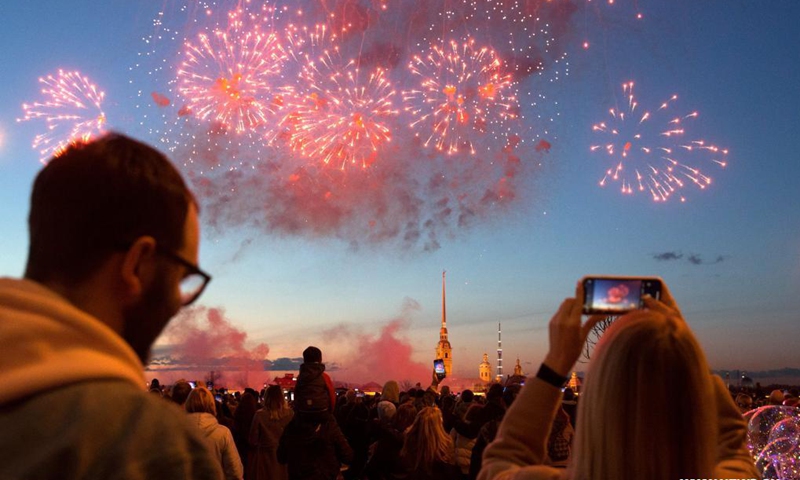China and Russia will commemorate the 76th anniversary of V-Day, for which the two countries paid a heavy price, by jointly opening an exhibition on the Soviet Union’s Battle of Stalingrad at the Museum of the War of Chinese People’s Resistance Against Japanese Aggression in Beijing on Friday.
The museum will hold a series of activities to commemorate the day, including a “Song of Victory” concert where classic music with an anti-Japanese invasion theme and Soviet Union melodies will be played, according to the museum’s WeChat account.
The special exhibition called “Battle Defending Stalingrad – Fearlessness and Heroism” will open at 4 pm, and an exhibition tour will be livestreamed at 7 pm.
China and Russia share common ground in terms of their attitudes and evaluations of World War II, and joint commemoration activities are increasingly common, observers noted.
On Thursday, 2,000 items including manuscripts, photos and objects belonging to Gao Wenbin, the late Chinese prosecutor at the trial of Japanese war criminals at the International Military Tribunal for the Far East, known as the Tokyo Trials, were donated to an archives center in Shanghai.
Many of the donated items are being exhibited for the first time, and they have high value of research for those who study the Tokyo Trials.
Gao dedicated much of his time to activities and studies on the War of Resistance Against Japanese Aggression (1931-45). He passed away at the age of 99 on September 7, 2020.
Commemoration of V-Day is important for the public to remember the history and inherit the courageous spirits of patriotic fighters.
It is also important to promote a correct historical narrative of WWII amid a right-wing militarism resurgence in Japan and the tendency in the West of wiping out the Soviet Union’s and China’s roles in the Anti-fascist War, Li Xing, a professor at the School of Government of Beijing Normal University, told the Global Times.
The tendency to distort the historical narrative comes along with the US-led ideological and strategic containment of China and Russia. Its storytelling of WWII serves real politics, Li said.
Hu Dekun, an expert on WWII studies and history professor at Wuhan University, said that international studies on the Anti-Fascist War seldom pay enough attention to China’s contributions, partly due to postwar ideological confrontation during the Cold War and Japan’s denial of the invasion’s truth.
History can shed light on reality. China and Russia upholding a truthful attitude toward history not only aims to offset the US-led hegemonic narrative on history, but also targets its hegemony in influencing international politics and shaping public opinion internationally, experts said.
Chinese State Councilor and Foreign Minister Wang Yi and Russian Foreign Minister Sergey Lavrov on August 16 had a telephone conversation where they exchanged views on safeguarding the history of WWII.
Wang and Lavrov talked about the joint efforts in defending the truth of history, human dignity and the achievements of WWII.
People watch fireworks commemorating the 76th anniversary of the victory in the Great Patriotic War in St. Petersburg, Russia, May 9, 2021.(Photo: Xinhua)




